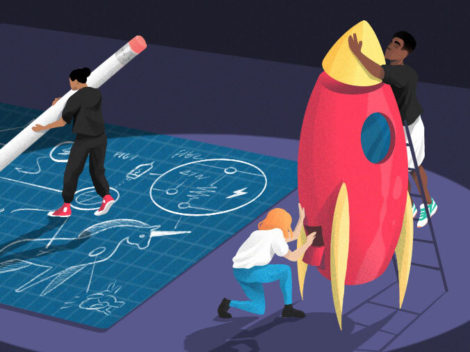Trust is a key pillar of the banking system, a pillar that has been shocked to its core over the past few days with the fall of Silicon Valley Bank.
Despite the Federal Deposit Insurance Corp. stepping in, has trust actually been restored within the wider startup community? At Startup Snapshot, we collected data from over 100 startup founders globally over the past several days in order to assess founder sentiment.
The data was collected in partnership with Intel Ignite, Consiglieri and the Zell Program at Reichman University.
Search less. Close more.
Grow your revenue with all-in-one prospecting solutions powered by the leader in private-company data.
The data highlights one clear fact: The broken trust in the startup community is far from repaired as founders question the regional banks and the bankers who run them.
Broken trust with the regional banking players
The dominant too-big-to-fail banking players are the clear winners coming out of the past few days. Even though these larger banks, such as JP Morgan Chase or Citibank, do not specialize in startups, the majority of founders stated that they will move or consider moving their funds there. The shift in preference to larger dominant banks can be seen both by startups that have been affected by the SVB collapse and those that have not, according to survey results.

Naturally, those that have been personally affected by the SVB fallout are more likely to move their funds, with 53% reporting they will definitely move their banking relationship to a more dominant player, and 32% reporting they will potentially move.
Despite not having been personally affected, 61% of founders who have not been touched by the SVB crisis will move or consider moving their banking relationship to those they view as more “stable” players.
The startup survival dilemma
In a conversation about the results, Nimrod Vromen, CEO of Consiglieri, likened the situation to the prisoner’s dilemma in game theory, in which two individuals (in this case startups) acting in their own self-interests do not produce the optimal outcome.
The highest reward for all startups would be to cooperate and leave their funds in SVB, instead of moving to larger banks that do not specialize in high-tech investments and do not offer venture loans with the same competitive terms.
Yet, when faced with the panic of the situation, each startup tried to optimize their personal outcome, withdrawing their cash from SVB.
All the startups acted in the same way, withdrawing their funds in droves, a move that led to the eventual downfall of the bank. According to Vromen, “strategically speaking, this shift will cause startups to have less favorable venture debt terms in the future, as the large dominant banks, which don’t specialize in venture, will be the ones that control the avenue of startup funding.”
Broken trust with the bankers themselves
Startup founders are also questioning whether the collapse was actually such a big surprise for those on the inside. When asked whether they think SVB bankers knew the risk that they were facing, the majority think they might have.
Of the founders surveyed, 31% reported that they think SVB bankers knew the risk they faced, and an additional 40% believed they might have known about the risk. Only 14% said the bankers did not know.
The data highlights the glaring lack of trust of the startup community in the regional banks and the bankers who run them, raising questions as to whether they are actually more vulnerable than we think or whether stability has actually been restored.
Yael Benjamin is the founder of Startup Snapshot, a data-sharing platform working to increase transparency in the venture ecosystem.

Stay up to date with recent funding rounds, acquisitions, and more with the Crunchbase Daily.





![Illustration of a guy watering plants with a blocked hose - Global [Dom Guzman]](https://news.crunchbase.com/wp-content/uploads/quarterly-global-3-300x168.jpg)
67.1K Followers